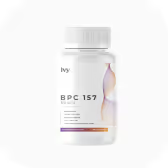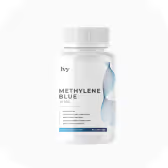


Glutathione injection
From $179
Unlock age-defying benefits with glutathione—boost energy, immunity, and reduce cellular damage.
Delivers directly into the bloodstream for maximum bioavailability
Powerful antioxidant protection to fight free radicals
Supports detoxification to flush out toxins naturally
Free delivery


How to take
Glutathione is administered as a subcutaneous injection—meaning it’s injected into the fatty layer just beneath the skin, typically in the abdomen, thigh, or upper arm. Not sure how to inject? Your kit includes step-by-step instructions, and our licensed providers are available to guide you anytime via secure messaging.
Potential side effects
Glutathione is generally well tolerated. Mild side effects may include bloating, cramping, or allergic reactions like rash or itching. Injection site discomfort may also occur.
Do I need insurance?
No insurance needed. IVY RX offers clear, upfront pricing and affordable generic options—making it easy and accessible to take care of yourself, no complications or surprises.
How Glutathione works
Antioxidant Protection
Detoxifies Naturally
Energizes & Brightens

Why Glutathione injection?
200,000+ members thriving and age defying
Quality tested
Your medication is prepared in a state-licensed pharmacy, independently verified in FDA- and DEA-registered labs, and delivered to your door exactly when you need it.
Potency test
Confirmed every 3–6 months to stay within ± 10 % of the target strength
Sterility test
Screened for bacteria, fungi, and other contaminants to meet USP 797 standards
Endotoxicity test
Checked to USP 85 limits to ensure zero harmful bacterial toxins
pH test
Fine-tuned for a smooth, irritation-free injection

Questions?
We’ve got the answers!
What is Glutathione?
Glutathione is your body’s natural defense system, protecting cells from toxins and stress. Levels can drop with age, stress, or poor diet, leaving you feeling drained and vulnerable. Restoring glutathione helps boost energy, strengthen immunity, and support healthy aging.
Do I need a prescription?
You do not need to have a pre-existing prescription or a referral to use IVY RX. After your online visit, if the medical professionals on our platform determine it is safe and appropriate, they will write a prescription for you.
Can I talk to a doctor?
Absolutely! You can quickly and securely message your care providers through our patient portal. Simply log in, choose your provider, and send them a message. It’s that easy!
Where on my body should I use the injection?
The Glutathione injection should be administered subcutaneously (under the skin). Common sites include the abdomen (avoiding the navel area) or the back of the upper arm. Ensure the site is clean and rotate injection sites to prevent irritation.
What comes with my glutathione injection order?
Your Glutathione injection order includes: One 2000mg vial of Glutathione injectable solution, syringes, and needles for administration.
Glutathione Injection: Important Safety Information
1. Introduction
- What is Glutathione?
Glutathione is a tripeptide (made from glutamate, cysteine, and glycine) naturally present in cells, where it plays a key role in antioxidant defense and various metabolic processes. - Regulatory Status
Glutathione injections are not evaluated or approved by the U.S. Food and Drug Administration (FDA) for specific medical indications, dosage, safety, or effectiveness. If you prefer only FDA-approved medications, please discuss alternatives with your healthcare provider.
2. Potential Benefits & Limitations
- Common Uses
Some practitioners may use glutathione injections for antioxidant support, skin health, or general wellness. - Limitations
The benefits are based on limited studies and anecdotal reports. Glutathione injections are not intended to diagnose, treat, cure, or prevent any disease.
3. Contraindications
You should not receive glutathione injections if you:
- Have a known allergy or hypersensitivity to glutathione or any component in the formulation.
- Are pregnant, planning to become pregnant, or breastfeeding without discussing the potential risks and benefits with a qualified healthcare professional.
- Have serious or unstable medical conditions (e.g., end-stage kidney disease, severe liver disease, or uncontrolled diabetes) without close medical supervision.
4. Warnings & Precautions
- Not FDA-Approved
- Glutathione injection is not FDA-approved, and its safety or efficacy profile for specific indications is not established.
-
- Consult a Healthcare Professional
- Before starting glutathione injections, discuss your entire medical history, current medications, and supplements with your healthcare provider.
- Talk about potential benefits, risks, and whether you need any follow-up lab tests or monitoring.
-
- Use in Specific Populations
- The safety in children, pregnant women, breastfeeding mothers, or immunocompromised patients is unknown.
- Use only under medical guidance if the potential benefits outweigh the risks.
-
- Allergies or Sensitivities
- Disclose any history of allergies or adverse reactions to medications, especially those administered via injection.
5. Potential Side Effects
While many individuals tolerate glutathione injections without major issues, some side effects may occur. Contact your healthcare provider if any symptoms persist or worsen.
- Injection Site Reactions
- Redness, swelling, pain, or bruising at the injection site.
- If you notice persistent or severe discomfort, discoloration, or infection-like symptoms (e.g., warmth, pus), consult your healthcare provider promptly.
-
- Allergic Reactions
- Itching, rash, hives, shortness of breath, or swelling of the face, lips, tongue, or throat.
- Seek immediate medical attention if you suspect a serious allergic reaction (anaphylaxis).
-
- Nausea or Gastrointestinal Distress
- Mild nausea, stomach upset, or diarrhea can occur.
- Report severe or persistent GI symptoms to your provider.
-
- Headache or Lightheadedness
- Might occur after injection; if severe, contact your healthcare provider.
-
- Other Possible Effects
- Changes in skin pigmentation, dizziness, fatigue, or other unanticipated symptoms.
- Discontinue and consult a professional if unusual or concerning effects arise.
6. Drug Interactions
- Medication and Supplement Considerations
- Glutathione may theoretically interact with certain prescription or over-the-counter medications, vitamins, or herbal products, especially those affecting oxidation-reduction or detoxification pathways.
- Always inform your healthcare provider of all medications and supplements you take to avoid potential interactions or complications.
7. Administration & Dosage
- Administration Method
- Glutathione injections are typically given subcutaneously (SUB-Q) or intramuscularly (IM).
- Administration should be performed by a qualified healthcare professional or under appropriate medical supervision.
-
- Dosage
- There is no universally accepted standard dosing protocol for glutathione injection.
- Your healthcare provider will determine the dosage and frequency based on your individual health status and treatment goals.
-
- Monitoring
- Depending on the reason for use, your provider may recommend regular lab tests (e.g., liver function, kidney function) to monitor safety and effectiveness.
8. Storage & Handling
- Temperature
- Store the product as indicated on the label or as instructed by your pharmacist (often in a refrigerator, protected from direct sunlight).
- Sterility
- Ensure vials or ampules are used in a sterile manner. Never reuse syringes or needles.
- Expiration
- Do not use beyond the expiration date. Inspect the product for discoloration or particulate matter before each use; discard if present.
9. Adverse Event Reporting
- If you experience a severe or unexpected reaction, discontinue use and seek immediate medical attention.
- You or your healthcare provider can report suspected adverse reactions to the FDA’s MedWatch Program at 1-800-FDA-1088 or online at www.fda.gov/medwatch.
10. Disclaimer
- Not Evaluated by the FDA: These statements have not been evaluated by the Food and Drug Administration, and glutathione injections are not FDA-approved to diagnose, treat, cure, or prevent any disease.
- Consult a Professional: This information is for educational purposes only and does not replace professional medical advice.
- No Guarantee: Individual responses and results may vary.
Questions or Concerns?
For any additional information regarding glutathione injections, including potential benefits, side effects, or dosage considerations, please consult your qualified healthcare provider.

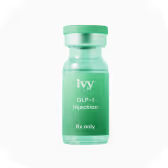

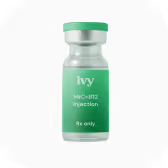




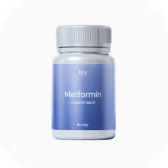

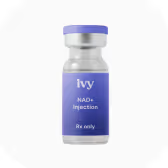


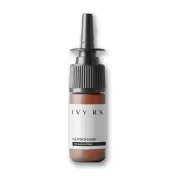
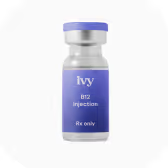
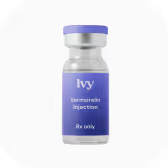
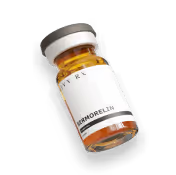
.avif)

